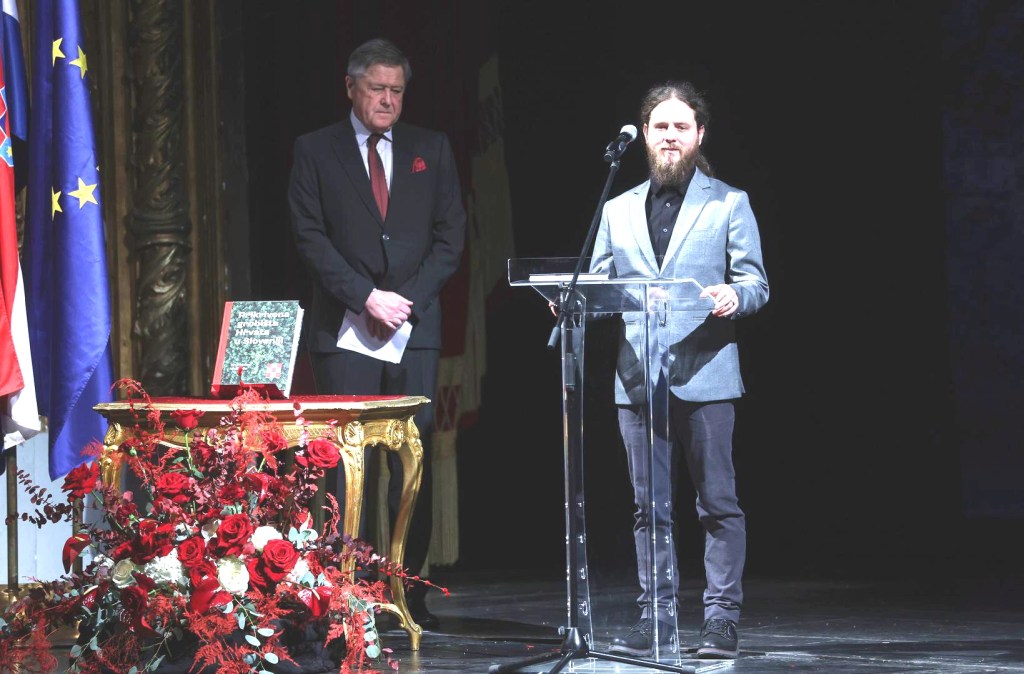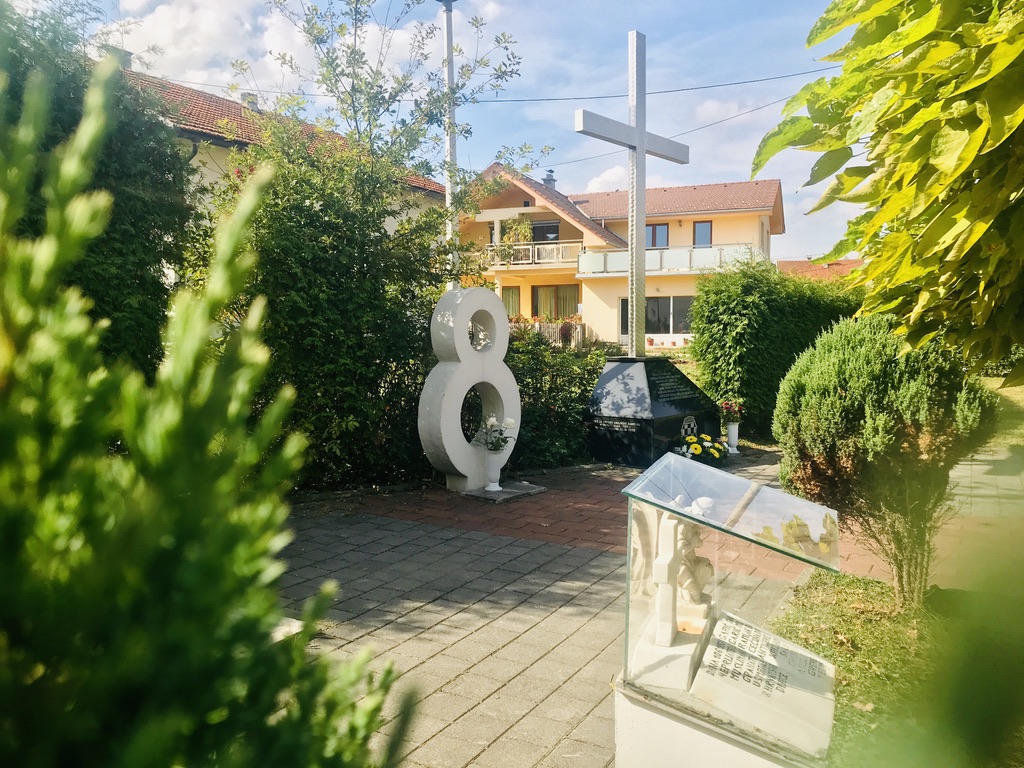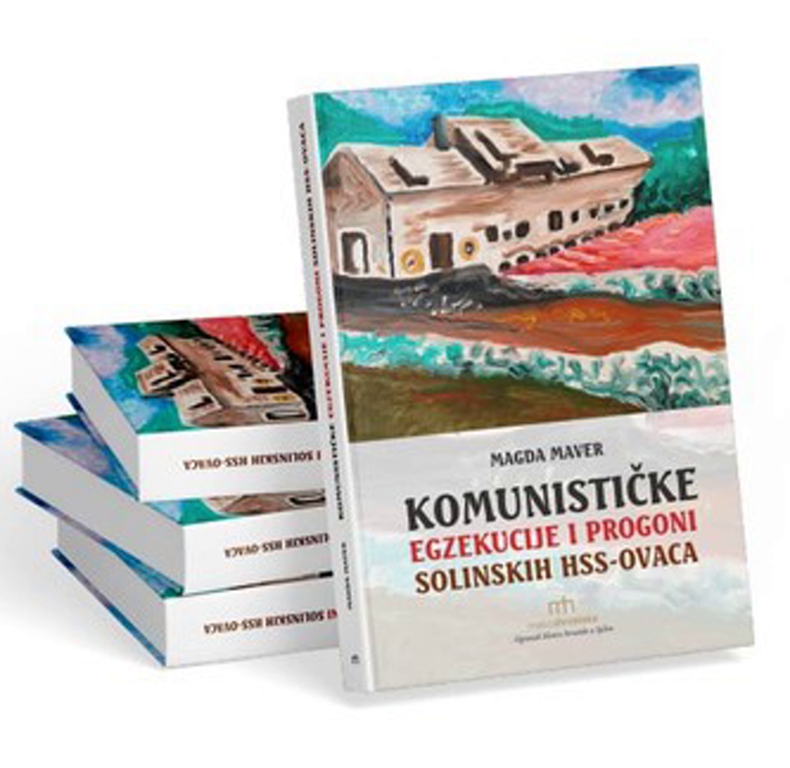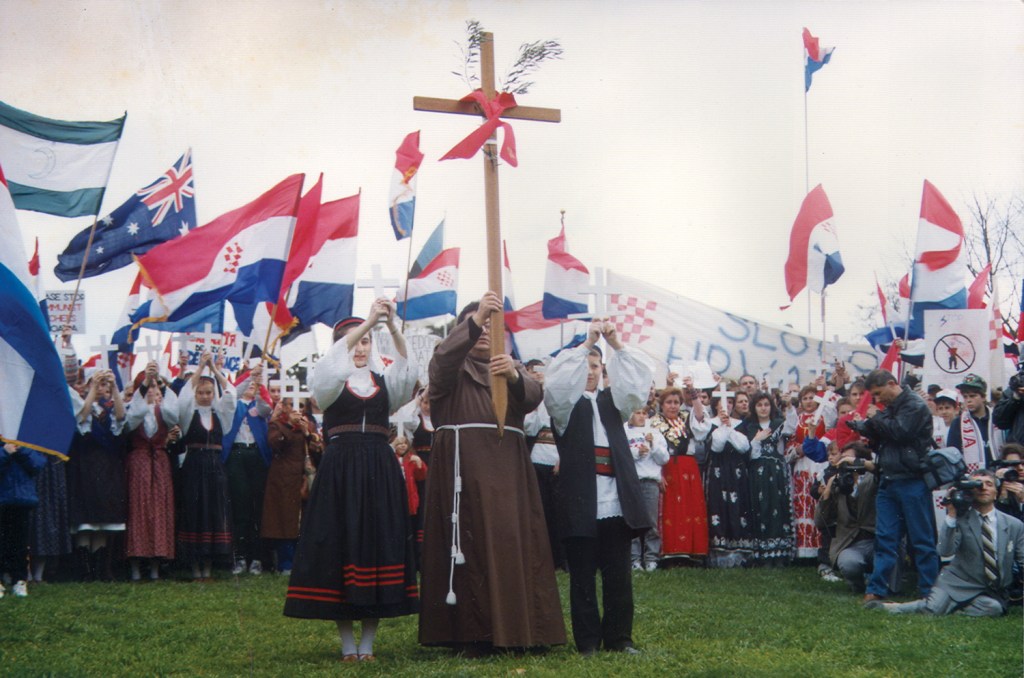
Two months after the Constitutional Court terminated the investigation of war crimes allegedly perpetrated by Josip Boljkovac in 1945 the Croatian State Prosecutor in Zagreb has January 27 re-opened the case.
The new investigation is to be carried out under the new criminal investigations procedures for the same case as when Boljkovac, 92, was originally arrested and detained for investigations in November 2011. Criminal allegations against Boljkovac impute that he, as one of the chiefs of the Karlovac regional Unit for the protection of people (OZNA), after the liberation of Duga Resa, was responsible for the killing of 21 civilians whom the communists charged with collaborating with the occupying Nazi Germany forces. The murdered civilians were found buried in mass graves in Kozjaca and Duga Resa.
This time around, Boljkovac had not been detained. His defence attorney Anto Nobilo stated that Boljkovac does not mind the re-opening of the investigation because his name has been associated with a number of crimes in the past and he wishes final clarification of the case.
For clarification purposes, the new criminal investigation procedure has restrictions on detaining persons over 90 years of age for the duration of investigations, while the old had no such restrictions.
As a reminder, the same defence attorney, stated to Croatian TV end of November, when Boljkovac was released from investigative detention, that he knew who the murderer of those civilians was – a comrade Mico!
On January 28, Boljkovac’s defence attorney Anto Nobilo, revealed the name of comrade Mico. He revealed the old communist Savo Zlatic as the person he regards to be responsible for the execution of 21 civilians in Duga Resa in 1945, and not Boljkovac. Nobilo said he had tracked Zlatic down from examining Croatian state archives pertaining to the case.
Croatian online news portal Nacional, having published the above Nobilo’s revelation enters into cynical criticism against Tomislav Karamarko, the former Minister of internal affairs who activated the November 2011 arrest of Boljkovac, for not being interested in state historical archives. Karamarko reportedly acted on evidence before him which pointed to suspicions of war crimes against Boljkovac.
How alarmingly irresponsible of a news portal to suggest that police work should rely solely on analysing historical jottings and documents (some of which can easily be construed as false representations for the purposes of hiding the truth) when it comes to gathering grounds for an arrest and detention of a suspected criminal.
It’ll be interesting to see what the current, renewed investigation against Boljkovac comes up with. Should Nobilo’s conclusions from studying historical archives come up trumps above the evidence/statements made about Boljkovac’s activities in 1945 given in recent years by living persons, then who knows which dead antifascist comrade will spring out from historical archives in the announced investigations against Josip Manolic and Rade Bulat, for alleged communist crimes.
The burden of inadequately and politically addressed communist crimes is an inveterate canker, deeply rooted influence that keeps many nations of Europe (and the rest of the world) fretful for justice. And this megashame for human kind can only be attributed to the political games played around the globe which drive the (deplorable) view that not all equally atrocious crimes deserve equal justice.
Declarations condemning communist crimes have been on agendas of most European Union member countries as well as the non-member ones. Croatian parliament condemned communist crimes in June 2006.
In 2010 the European Commission rejected calls from Eastern Europe to introduce a so-called double genocide law that would criminalise the denial of crimes perpetrated by communist regimes, in the same way many EU countries ban the denial of the Holocaust.
“There is no consensus on it. The different member states have wildly differing approaches,” EU justice spokesman Matthew Newman told the Guardian. He said the commission takes the issue “very seriously”, but: “At this stage, the conditions to make a legislative proposal have not been met. The commission will continue to keep this matter under review.”
Efraim Zuroff, the Nazi-hunter and director of the Simon Wiesenthal Centre’s Israel office, described in December 2010 the effort by the Eastern European countries as a “false symmetry”.
“We have no problem with a day of commemoration for communist crimes, and indeed, something should be done, but the Holocaust was a unique tragedy in history,” he said.
“For all the terrible crimes of the USSR, you can’t compare the people who built Auschwitz with the people who liberated it. Nazi Germany would probably not have been defeated if it weren’t for Russia”
Mr Zuroff had in November 2011 commented in similar ways when Josip Boljkovac was first arrested in Croatia. “Part of that campaign is to, without foundation, equalise the crimes of Nazis – or ustasche in Croatia – with the crimes committed by communists,” he said.
So, Mr Zuroff has no problems with commemorating (recognising) communist crimes but he has major issues with punishing them. The fact that Russians liberated Auschwitz did not give them the right to build their own Gulags and extermination camps where millions of innocent people were murdered. The same can be said for all other countries affected by communist crimes.
This political game of who is more, who is less deserving of punishment for atrocious crimes Mr Zuroff appears to be fervently and shamelessly subscribed to makes no sense and inflames bad and corrupting emotions.
One thing is sure: both the Nazi and the Communist systems aimed to kill and killed millions, tens of millions people and nothing anyone says can change this fact.
According to the Victims of Communism website there have been more than 100 million victims of Communism worldwide since 1917.
Millions of innocent people perished under each of these systems and yet, under political influence only the victims of the Nazi system have deserved justice. This is plain wrong.
“For Croatia, 1945 marked the imposition of Communist rule and return to Yugoslavia. Shielded by their fight against Nazi Germany, Communists used the Second World War to get rid of domestic political competition as well. Tens of thousands fell victim to Communist crimes after WWII. After liberating Croatia from Nazis and establishing the new state of Yugoslavia, Communists went after the anti-Communist Croatian army units who had retreated to Austria and surrendered to British troops. Britain, however, turned 340.000 soldiers and civilian refugees over to Yugoslav authorities who, according to different estimates, murdered 50.000–200.000 of them. Terror continued after Communists had secured power and by 1953, some 116.000 people had been repressed, including 26.947 killed. Although the terror later subdued, Croatia had tens of thousands political prisoners during 1948–88.”
Roger Cohen, in his 2005 article for New York Times said:
“Indeed, in terms of sheer numbers, Communism’s claim to have been more murderous than Nazism is persuasive: it lasted longer and its reach was greater”… “it remains striking that Nazism was judged at Nuremberg, whereas the crimes of Communism have never come before an international tribunal. The resulting gray areas provide space for Russia to dig in, proclaim its great achievements, and dismiss the pain its victory inflicted” … “the dirty laundry of Communism has not yet been hung out in the sun. The search for truth remains a work in progress.”
Steven W. Leckner, in his January 2012 article “Nazism and Communism: Whose Crimes Were Worse?” writes: “It is impossible to declare one ideology as worse than the other and more important to make sure that nobody, be they Holocaust revisionists or members of the Russian Government, attempt to portray them as anything less than legacies of the worse kinds of terror known to mankind”.
The same can be said for the Communist crimes committed in Croatia during and after WWII. Regardless of the fact that Croatia’s former president Stjepan Mesic, the president of the Serbian National Council in Croatia Milorad Pupovac and others have expressed similar views to Zuroff’s on the matter of pursuing justice for victims of Communist crimes, Croatia’s government and opposition should continue in the path commenced with Boljkovac, Manolic and Bulat.
If some call this historical revisionism so be it. After all, some truths of history have been tarnished, important parts left out or skewed by political forces and a revision that surfaces the truth is welcome.
Properly processing (without political burdens) suspected communist crimes is the only way that the people will place their trust in justice. With that they will have an opportunity to build a strong future, untouched by mistrust that lack of punishment and pursuits against Communist crimes create. Ina Vukic, Prof.(Zgb);B.A.,M.A.Ps.(Zgb)








Leave a reply to Esther Gitman Cancel reply